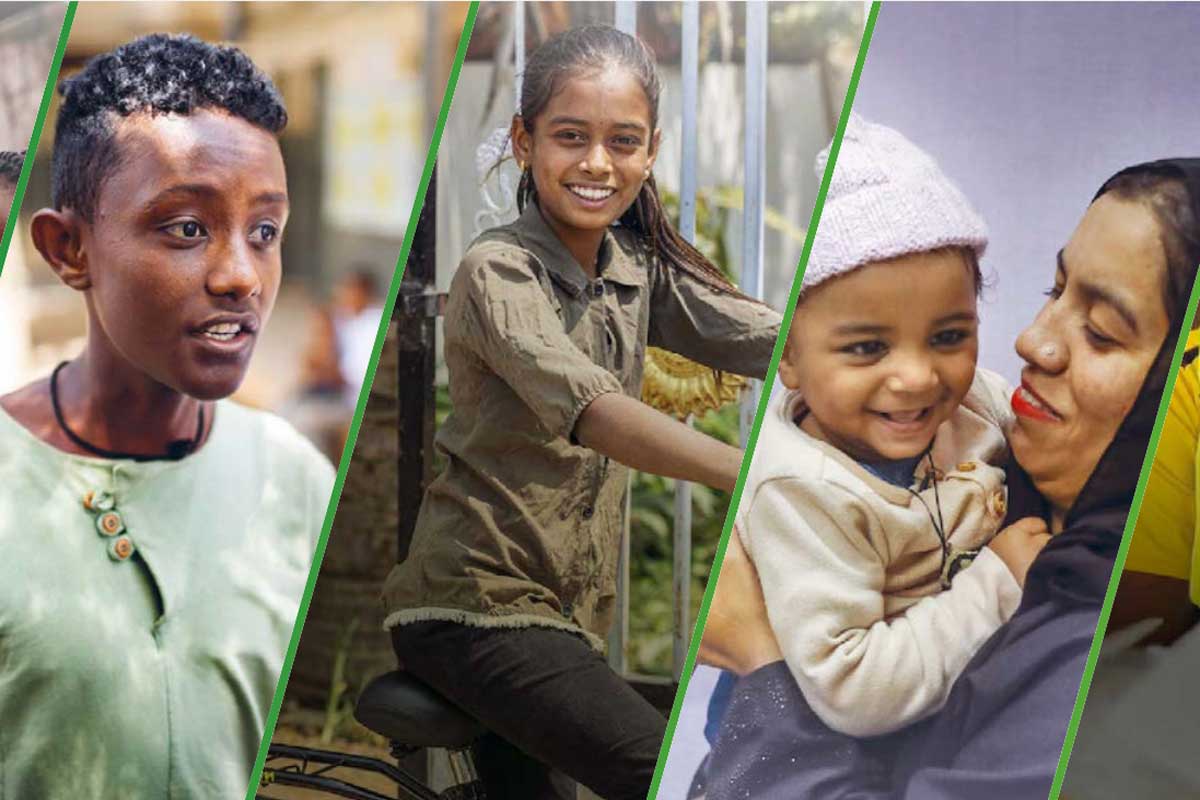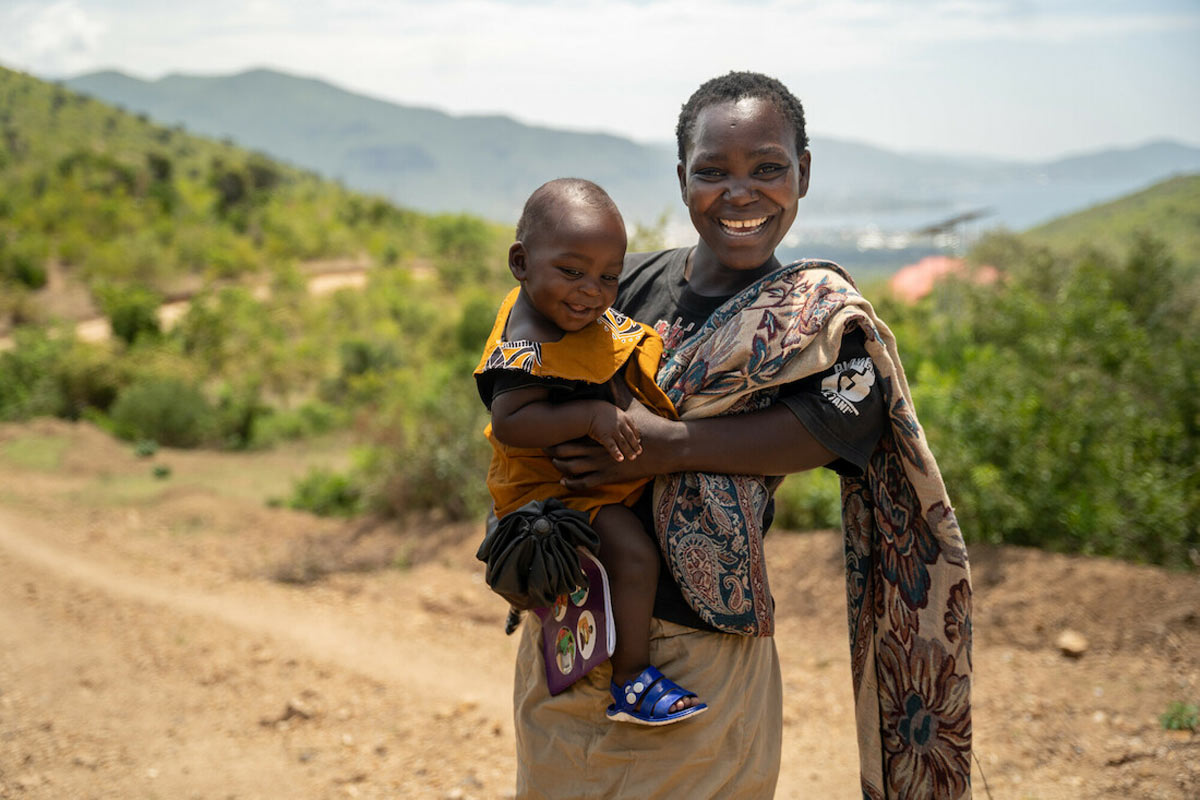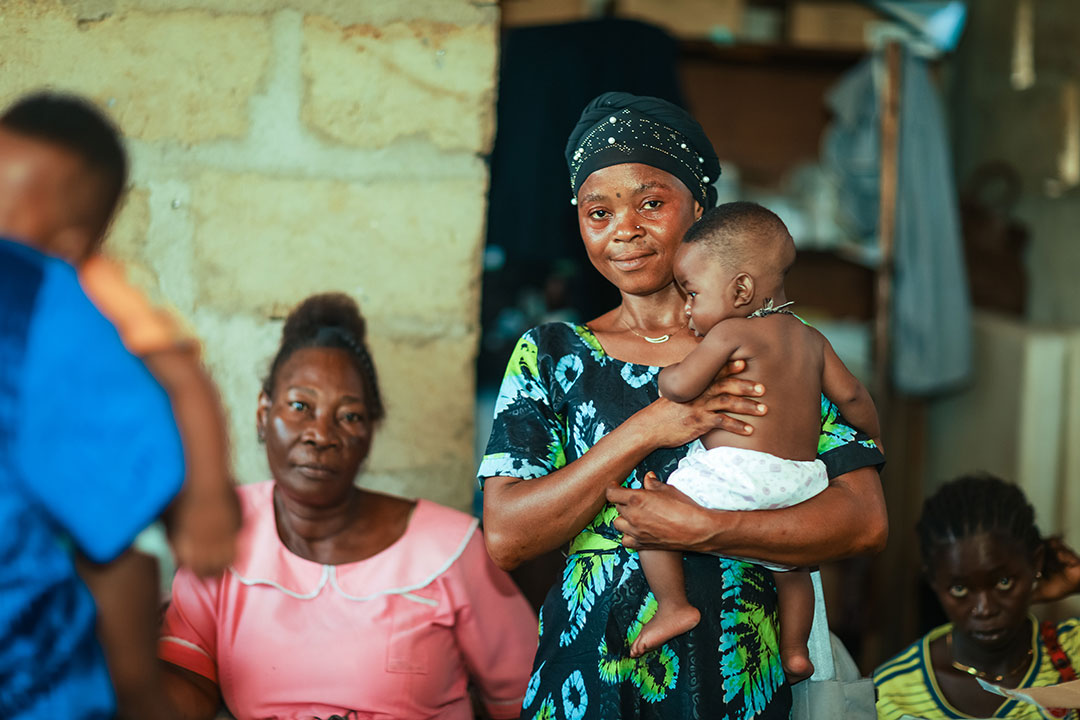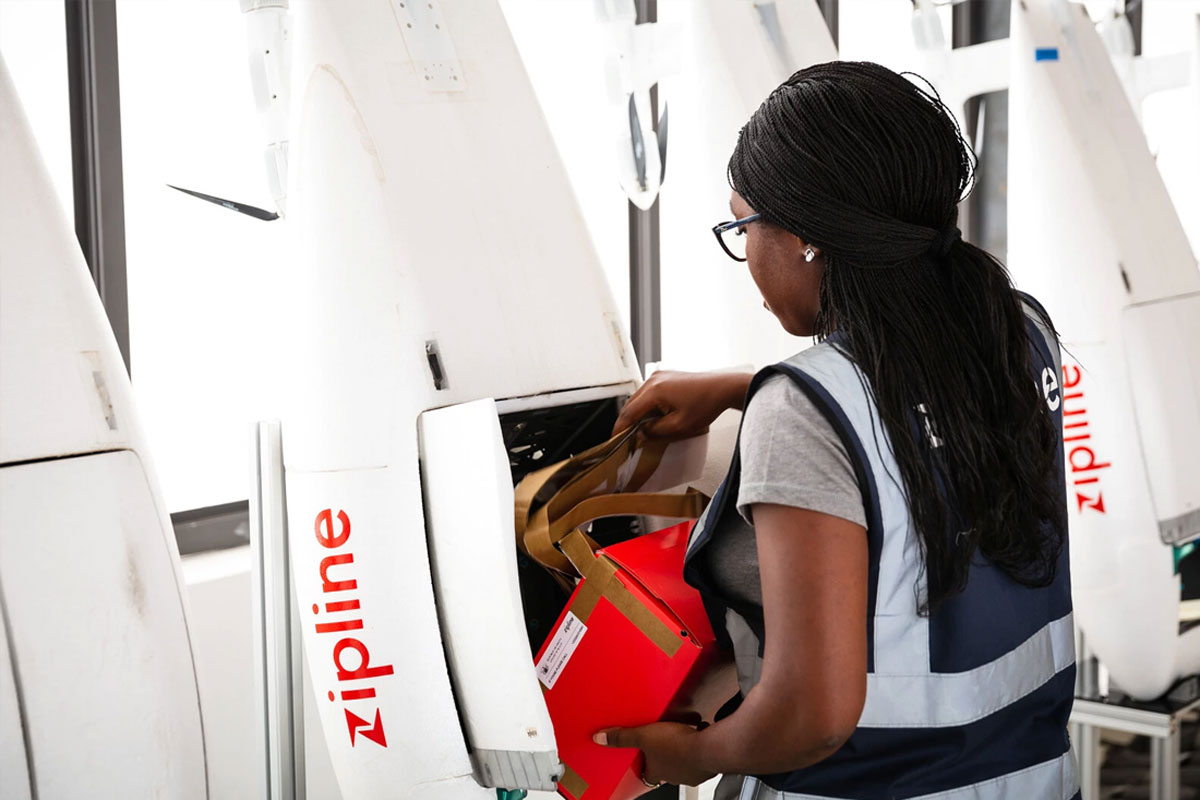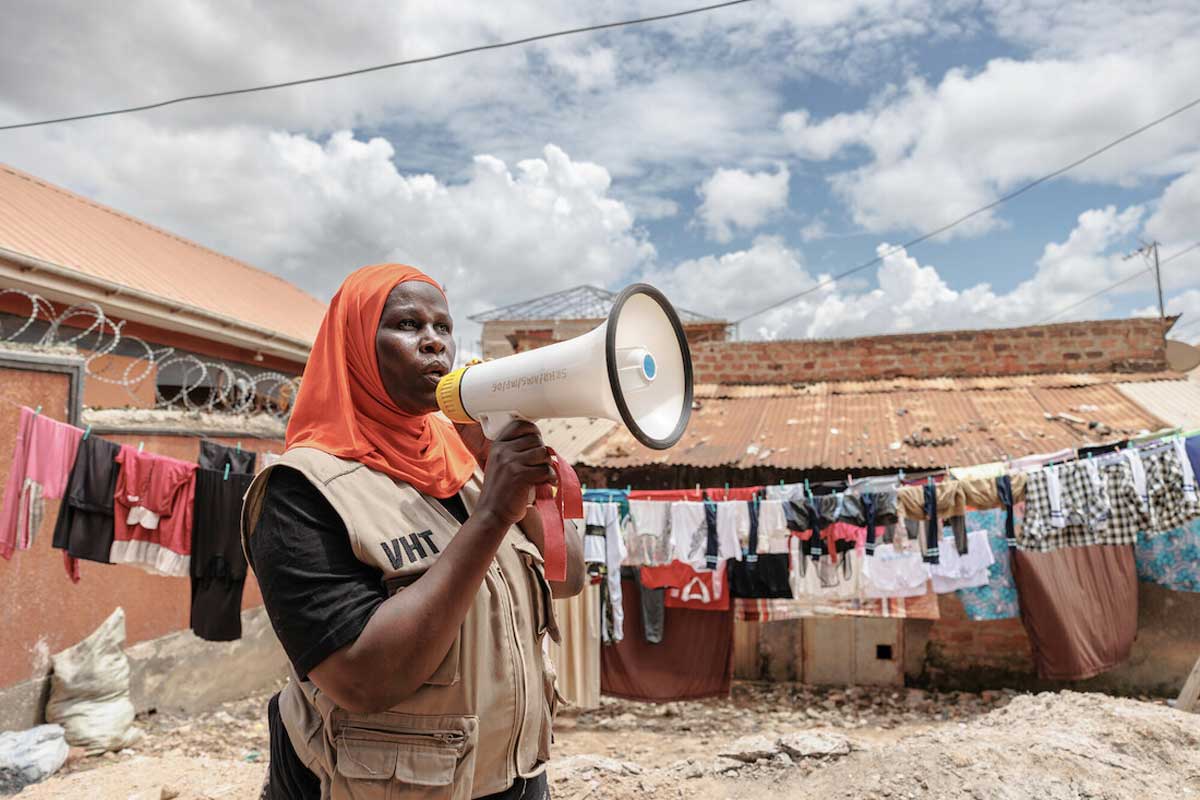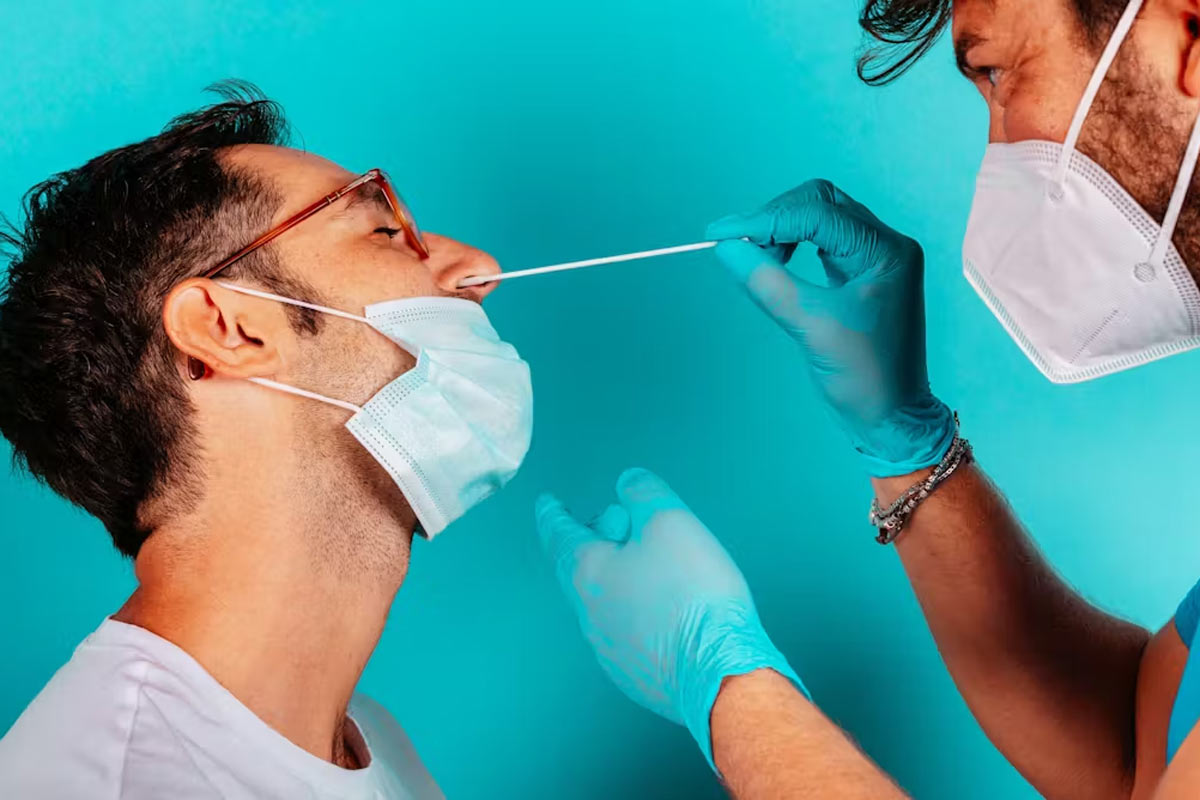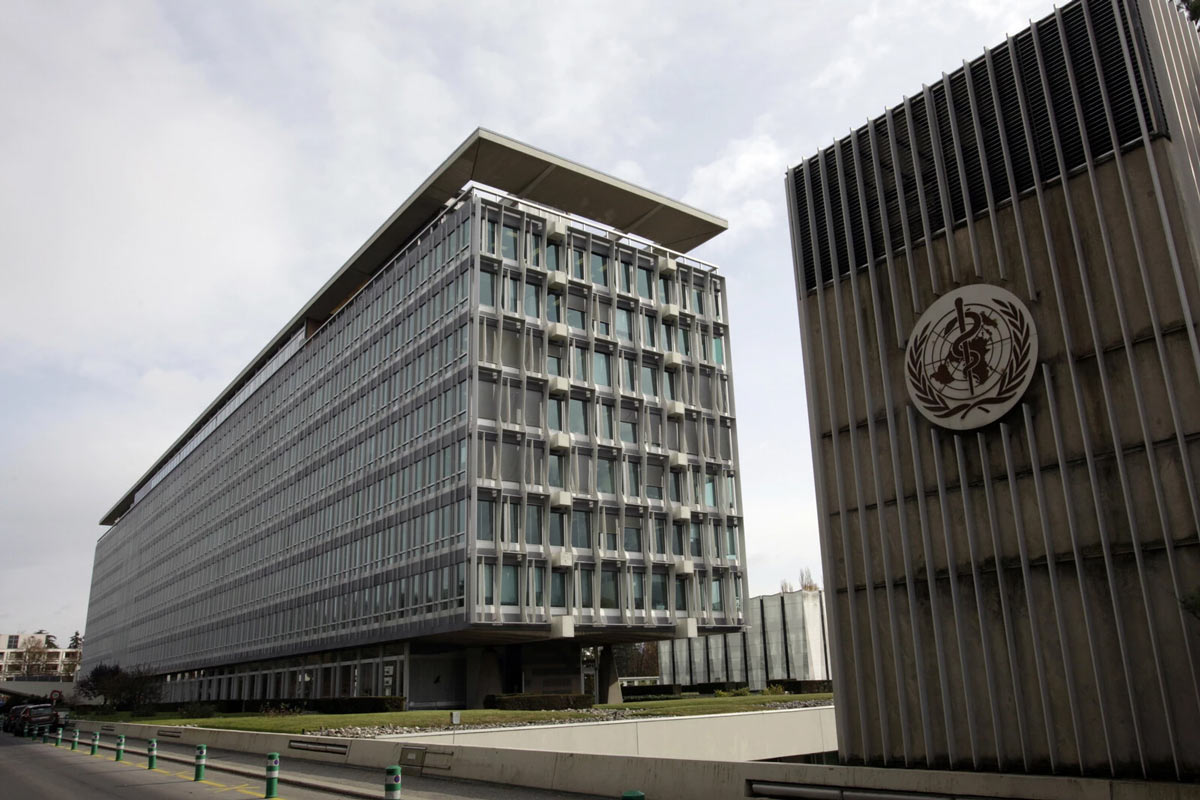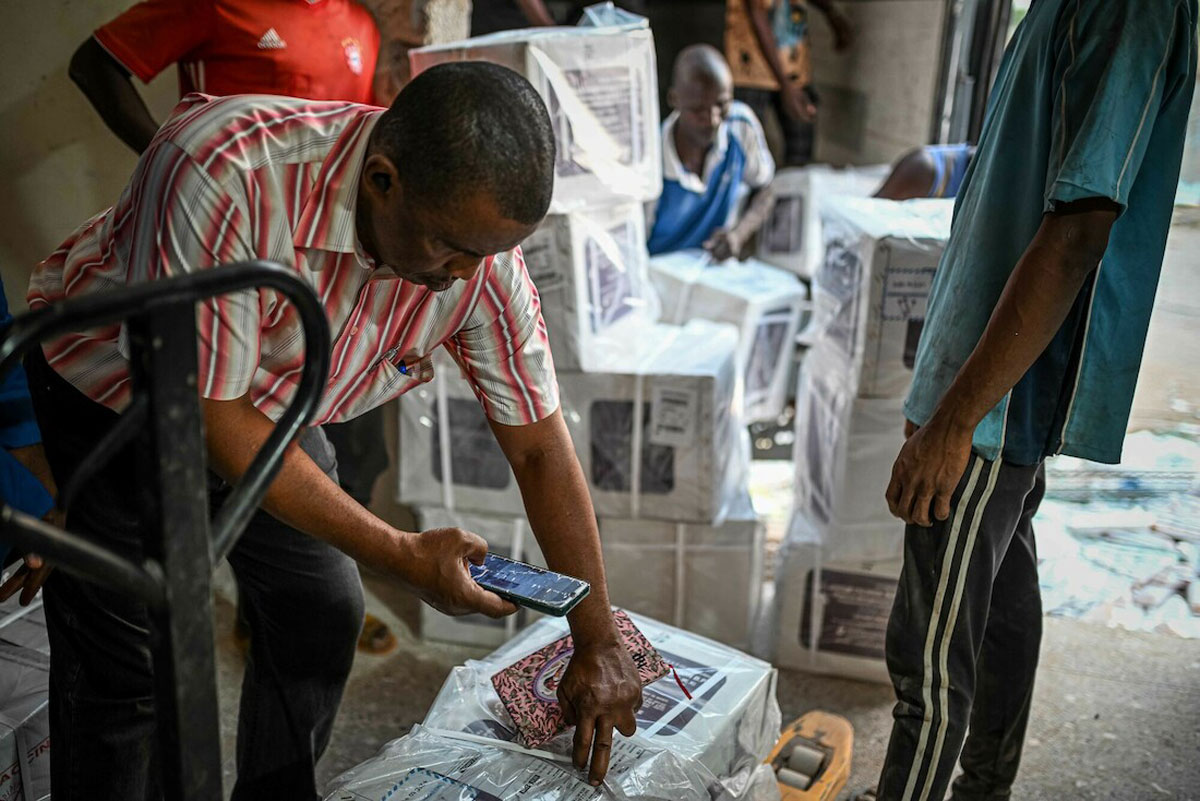New vaccination figures underscore urgency to reach the most vulnerable
New data shows the impact COVID-19 is having on routine immunisation programmes worldwide, particularly in lower-income countries. We need action, now, to get routine immunisation programmes back on track and ensure that everyone, everywhere is reached, as well as tackle global inequities in access to COVID-19 vaccines.
- 22 July 2021
- 6 min read
- by Gavi Staff

The new childhood immunisation figures published last week paint a bleak picture for children worldwide. 23 million children missed out on basic vaccinations last year – that is around 1 in 6 children not protected from potentially life threatening, yet preventable diseases.
The number of children not being reached with vaccinations spiked to its highest level in over a decade, with a decline in global coverage from 86% in 2019 to 83% last year. Coverage remained stagnant or dropped in the majority of countries, with declines largely due to COVID-19-related disruptions to services. Nearly 50% of countries have experienced disruptions to basic primary healthcare services this year alone. This is one of the many devastating impacts of the pandemic on children’s lives.
The glaring inequalities in vaccination coverage across countries is manifesting itself both with routine immunisation and COVID-19 vaccines. And it is the world’s most vulnerable populations that are paying, and will continue to pay, the price.
However, this burden is not felt evenly around the world. Nearly two-thirds of unvaccinated children were in just 10 countries. 15% of these children are in India, where national coverage dropped by nearly 7% between 2019 and 2020. While Nigeria managed to mitigate service disruptions through catch up campaigns, they have the second highest number of unvaccinated children (after India) and national coverage remains low, at only 57%.
Within countries it is the most vulnerable children that are bearing the brunt of the impact, including children in conflict-affected communities, in informal settings and slums, and those in underserved areas. These same children are unlikely to have access to any health services at all, undermining their fundamental right to health.
The same populations deprived of both routine and COVID-19 vaccinations
It is in many of these same countries that populations are being deprived of one of the key tools that can help bring an end to the pandemic and its devastating impacts – COVID-19 vaccines. While COVID-19 vaccination coverage has reached over 50% in many high-income countries (e.g. Canada and the United Kingdom have coverage of around 70% while in the European Union and United States it is over 55%), in Africa, only 3% of the population has been vaccinated.
COVAX was set up to help level the playing field by helping to secure vaccines for low-income countries, but the actions and inactions of many wealthy countries has undermined its potential. These countries have bought up over 40% of the global COVID-19 vaccine supply (compared with less than 17% procured by COVAX). And now, despite reaching relatively high coverage (with some countries now even talking of booster doses) they have not acted with the urgency needed to redistribute doses where they’re needed to countries that still haven’t been able to even vaccinate their frontline health workers and most vulnerable populations, many of which are facing devastating third waves. Moreover in a context of limited global vaccine supply, many of those in a position to help unlock barriers to unleash manufacturing capacity and supply have failed to take actions needed to do this.
Have you read?
The glaring inequalities in vaccination coverage across countries is manifesting itself both with routine immunisation and COVID-19 vaccines. And it is the world’s most vulnerable populations that are paying, and will continue to pay, the price.
It is clear what is needed, but now we need action – and we need it now
All governments and stakeholders must prioritise and implement Immunisation Agenda 2030 (IA2030) – a Global Strategy to Leave No One Behind for this vital health services. IA2030 will be instrumental in helping countries recover from backsliding due to Covid-19 impacts and in delivering on the goal to ensure that everyone, everywhere is reached with vaccinations.
Governments must invest in health systems and ensure the continued delivery of essential services, such as vaccination. They must prioritise reaching zero dose children and closing equity gaps so that all children are reached. And they must also ensure that the rollout of COVID-19 vaccines does not disrupt or divert resources from routine immunisation, but rather build on and strengthen existing systems to help improve the sustainability and reach of other routine immunisation programmes and health services in the long term.
To prevent further impacts from the pandemic, all governments and stakeholders must also prioritise equitable access to COVID-19 vaccines to help bring an end to the pandemic, in all countries. Donors need to urgently redistribute a proportion of already secured vaccine doses to countries where they are urgently needed (via COVAX) and step up funding to help fully finance global vaccination efforts to accelerate vaccinations in developing countries. Governments and vaccine manufacturers must take action to help expand manufacturing capacity to increase supply, including supporting the WTO TRIPS waiver, sharing COVID-19 health technology related knowledge, intellectual property and data with C-TAP and prioritising investment and collaboration with developing country manufacturers.
Without decisive action on all these fronts, we risk more children being left behind and exposed to potentially life-threatening diseases. We all have an obligation to ensure this doesn’t happen and to deliver on the promise of health for all.
The Gavi CSO Steering Committee’s mission is to provide the perspectives of communities for better health outcomes, leveraging Civil Society Organisations (CSOs) in country efforts to increase and improve levels of immunisation coverage and equity. Many CSOs provide services to underserved populations with a particular focus on communities in fragile, urban poor or rural remote contexts and those suffering from stigma and discrimination. The Gavi CSO Steering Committee (Gavi CSO SC) is composed of 21 members from across the world (currently from 17 different countries). They represent a wide and diverse constituency comprised of more than 450 CSO across the world. The SC members engage on a volunteer, 3-year term basis in different global and regional fora, such as Gavi Alliance governance committees and its Board. All members strive to develop, promote, and safeguard the values, principles and interests of the CSO Constituency. Follow us on Twitter (@GaviCSO), Facebook & on our website (www.gavi-cso.org)

